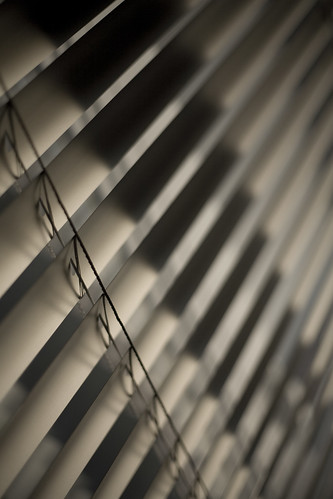What I would like to discuss is, what is the most important lens for your SLR/Camera?
I'll contend that the most important lens to have in your bag (edit) *ON YOUR BODY* is a 50mm prime lens.
Most importantly its a fixed focal length. Without a zoom, you're forced to THINK (gasp) about your shot and move YOURSELF to achieve the composition you desire. I believe this is a fantastic passive creative mechanism. Anyone can stand in place with a zoom, machine gun and say "aren't I amazing?"
When you are forced to stop and think about your shot, you're much more likely to get it right, and get it the way you want it rather than just ripping off 100 shots of the same thing and hoping for the best. For me, this alone is reason to have a 50mm or 35mm (well any fixed focal length for that matter) lens.

Speed: My 50mm is a 1.8. That's almost an aperture the size of a sewer pipe...ok not really but its BIG. Sure you can get a 1.4 or even a 1.1 but those are 3-4x the price for a 1.4 and like 15x more money for the 1.1 With 1.8 you can shoot at shutter speeds in low light that are fast enough to stop motion without having to crank your ISO speed and loose quality.
Image Quality: Like most things in life, lenses are a give and take between image quality and flexibility. You can have a wide focal range, say 18-200mm (Nikon has a great lens in this range) but the laws of physics and the need for a reasonable (whats that mean anyway?) price make it difficult for a wide focal range AND a super wide, constant aperture across the focal length at a price people will pay. With Nikon's 18-200mm lens, its F5.6 at the long end, thats DRASTICALLY less light than our little prime lens. At a fixed focal length, the construction of the lens is far more simple and provides much better image quality at the prescribed focal length. ...the compromise here is the lack of zoom. But in this instance I'm viewing that as a benefit as well :)
Depth of field: At a very wide aperture you have a VERY narrow depth of field. This creates a great effect (bokeh they call it) where one thing is spot on focused while everything else fades further and further out of focus. The 'sweet spot' of the lens where it gives its best performance is also at a wider F/stop, again, allowing you to shoot faster shutter speeds.

Price: My 50mm 1.8 was less than $100 and is TACK sharp. What else do you want? (I'll argue sharper than the Canon 24-70 2.8...that's fixed focal lengths for you) Sure the AF is archaic, its a plastic mount, certainly doesn't have Image stabilization but that's not the point here ...is it?
I would say without question that a fast prime lens is the best student/beginner lens. Not only is it cheap and sharp, but it really does feed the creativity and force you to put a little thought into your composition...something that will make a MASSIVE difference in your end result.
If you are just starting out, or maybe have been shooting a while and have found yourself in a rut, pick up, or perhaps dust off your prime lens and really experiment with what you see through the viewfinder. Remember - YOU are the zoom!
Follow me on TWITTER
Flickr
You make a good point. I need a 50.
ReplyDelete